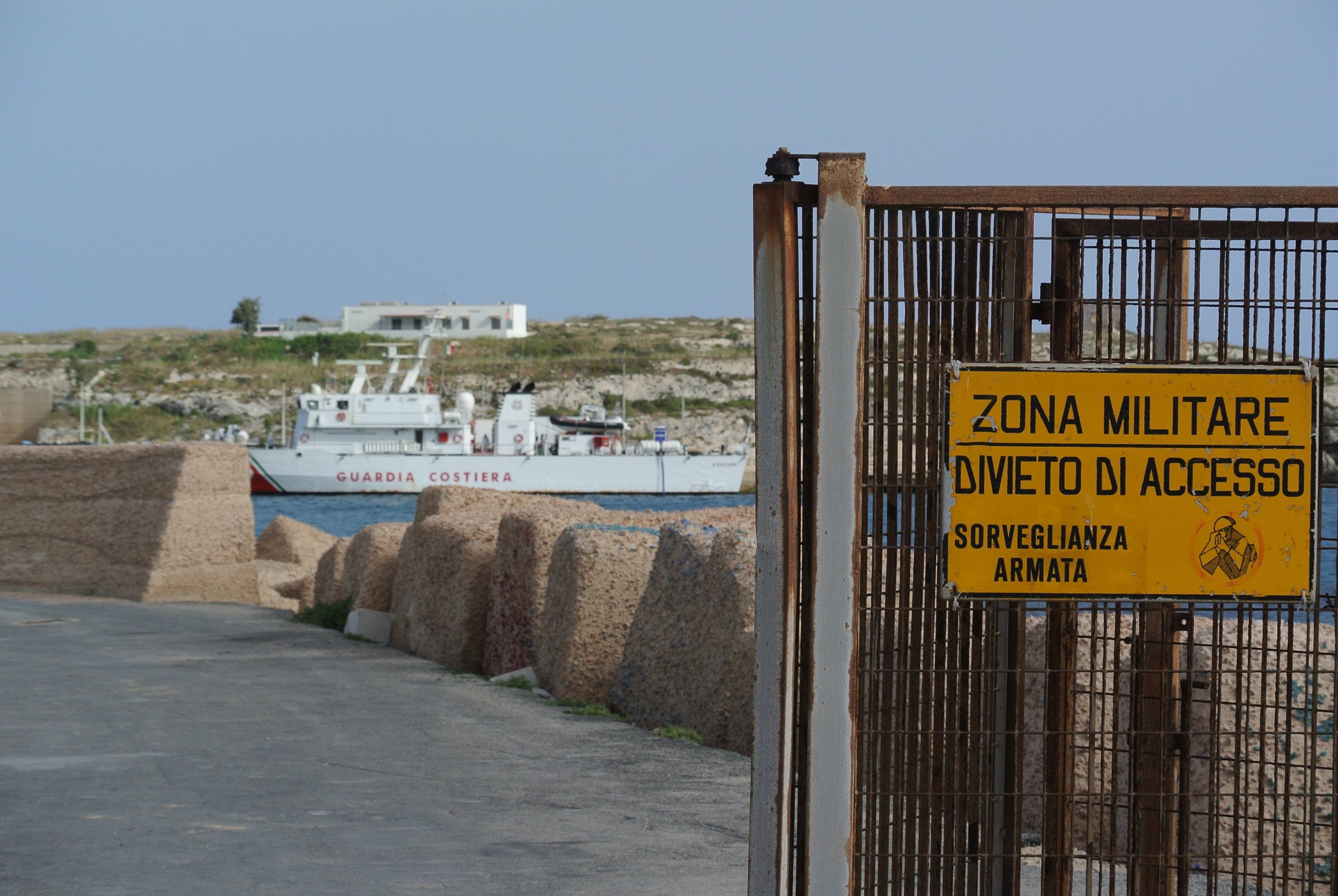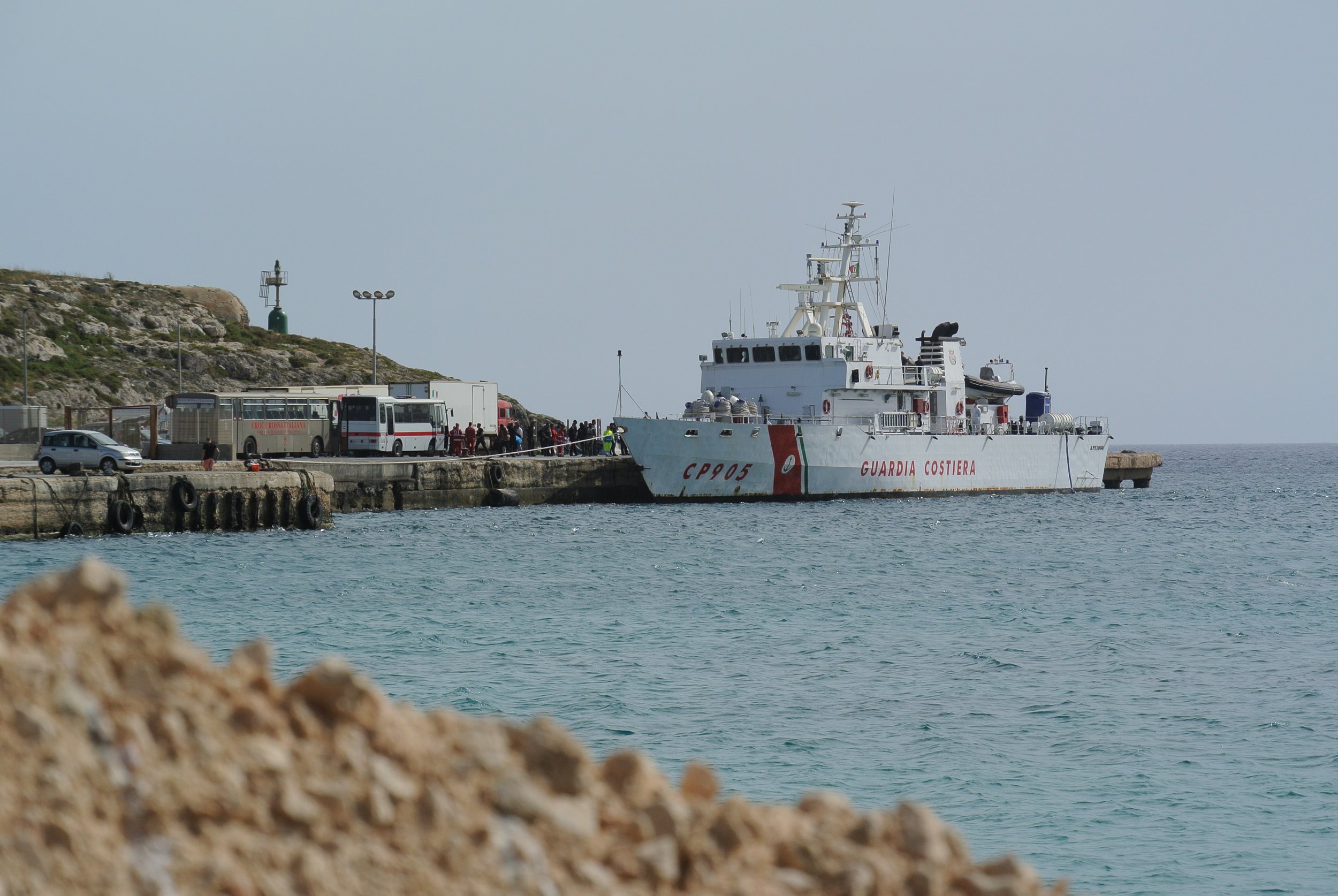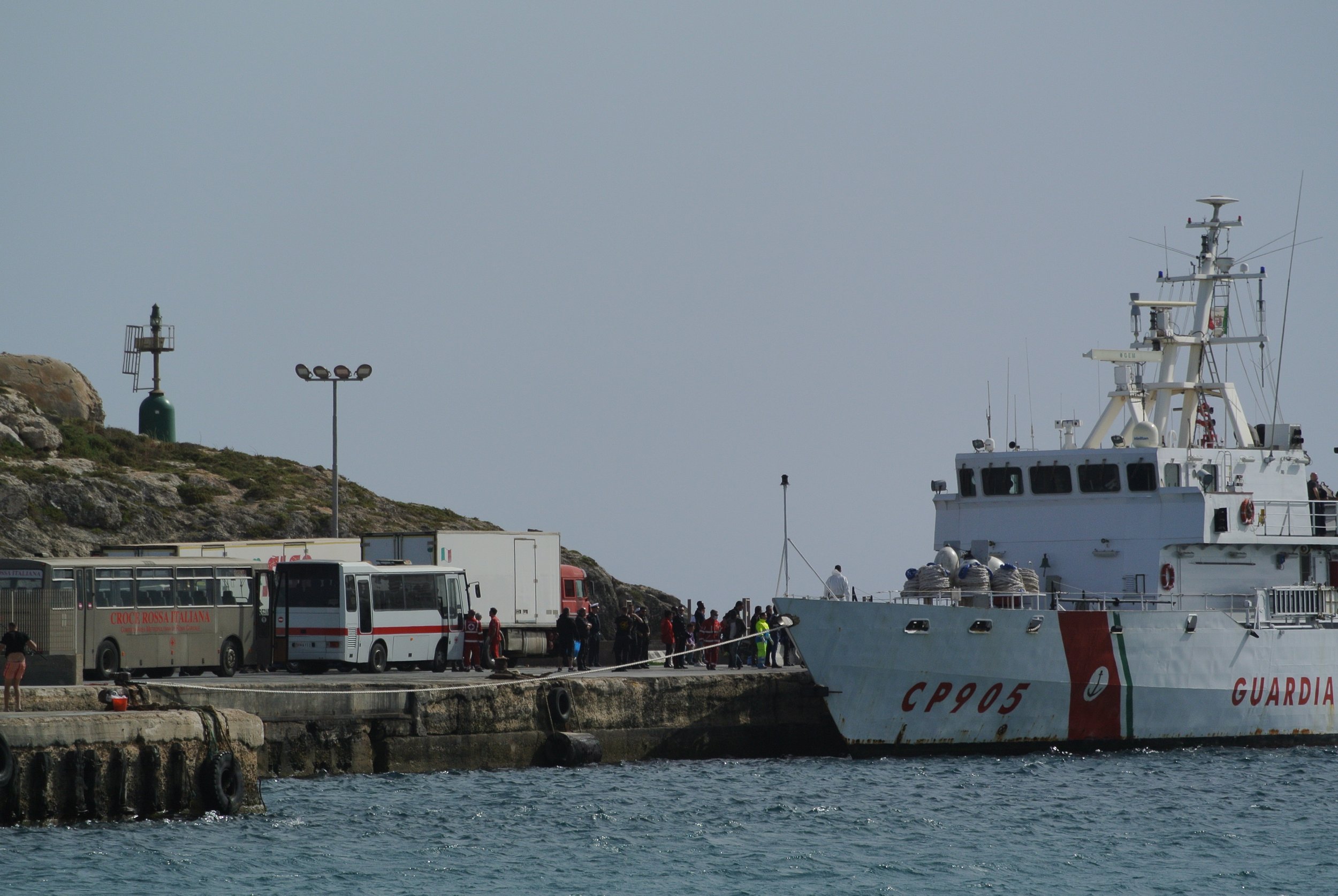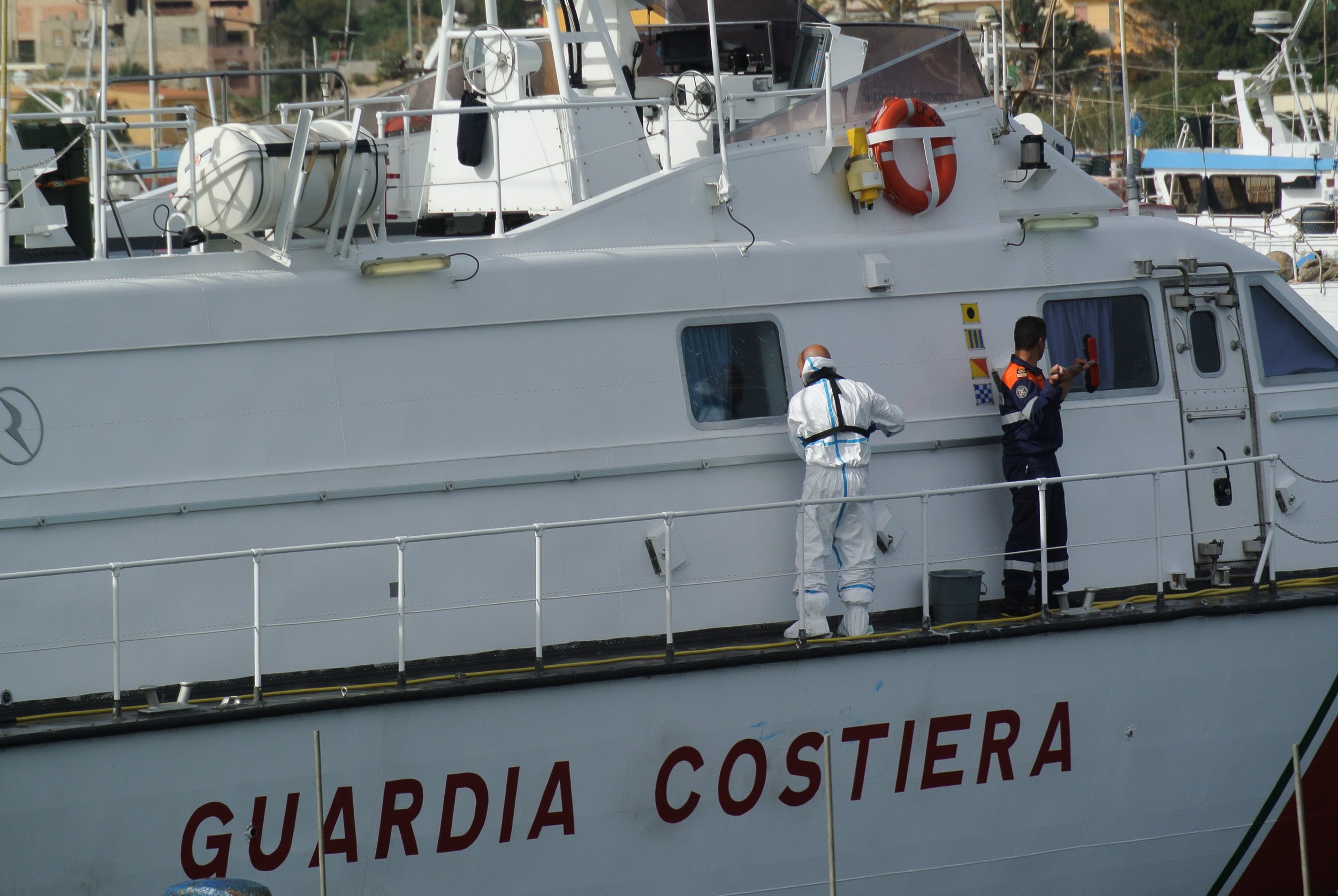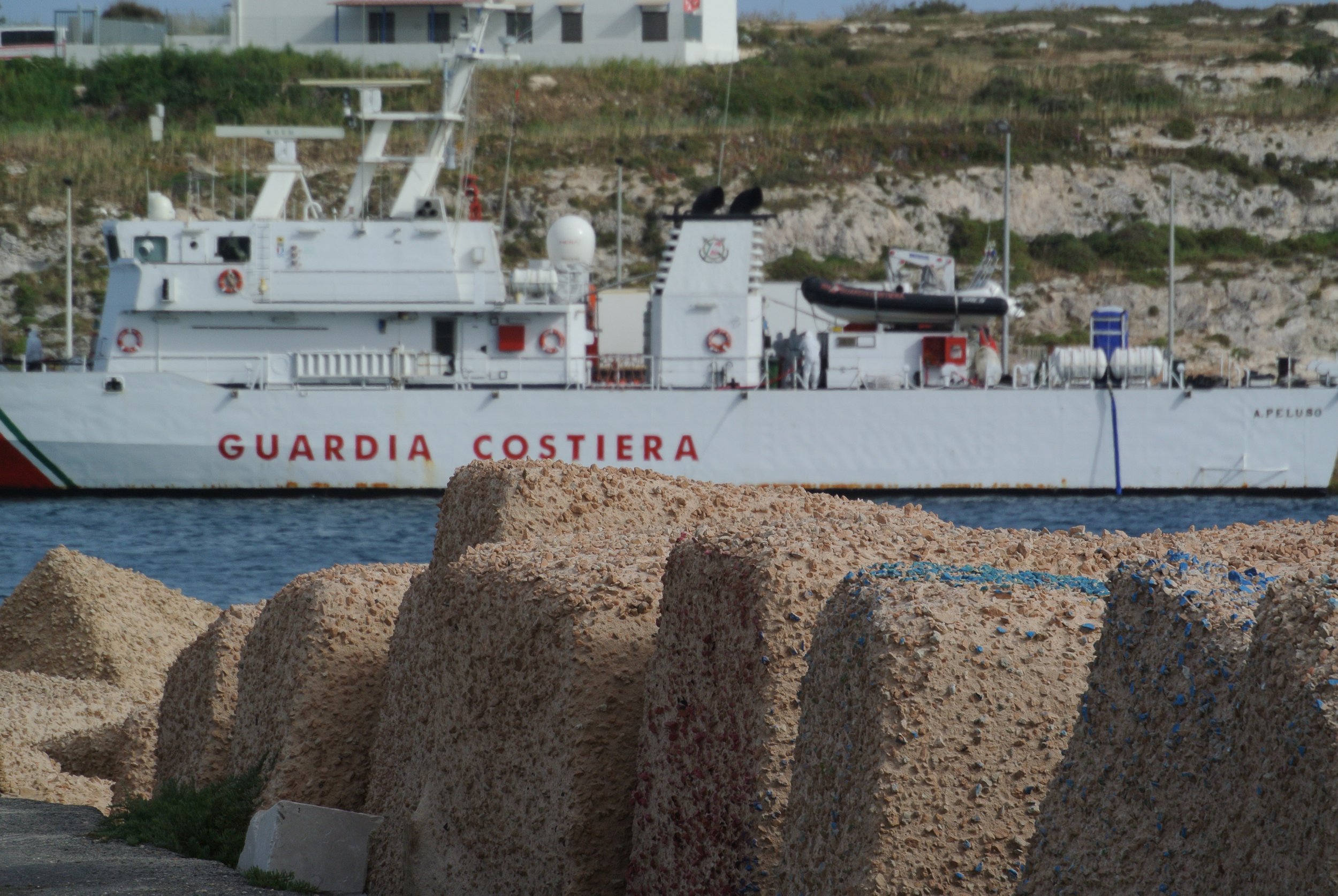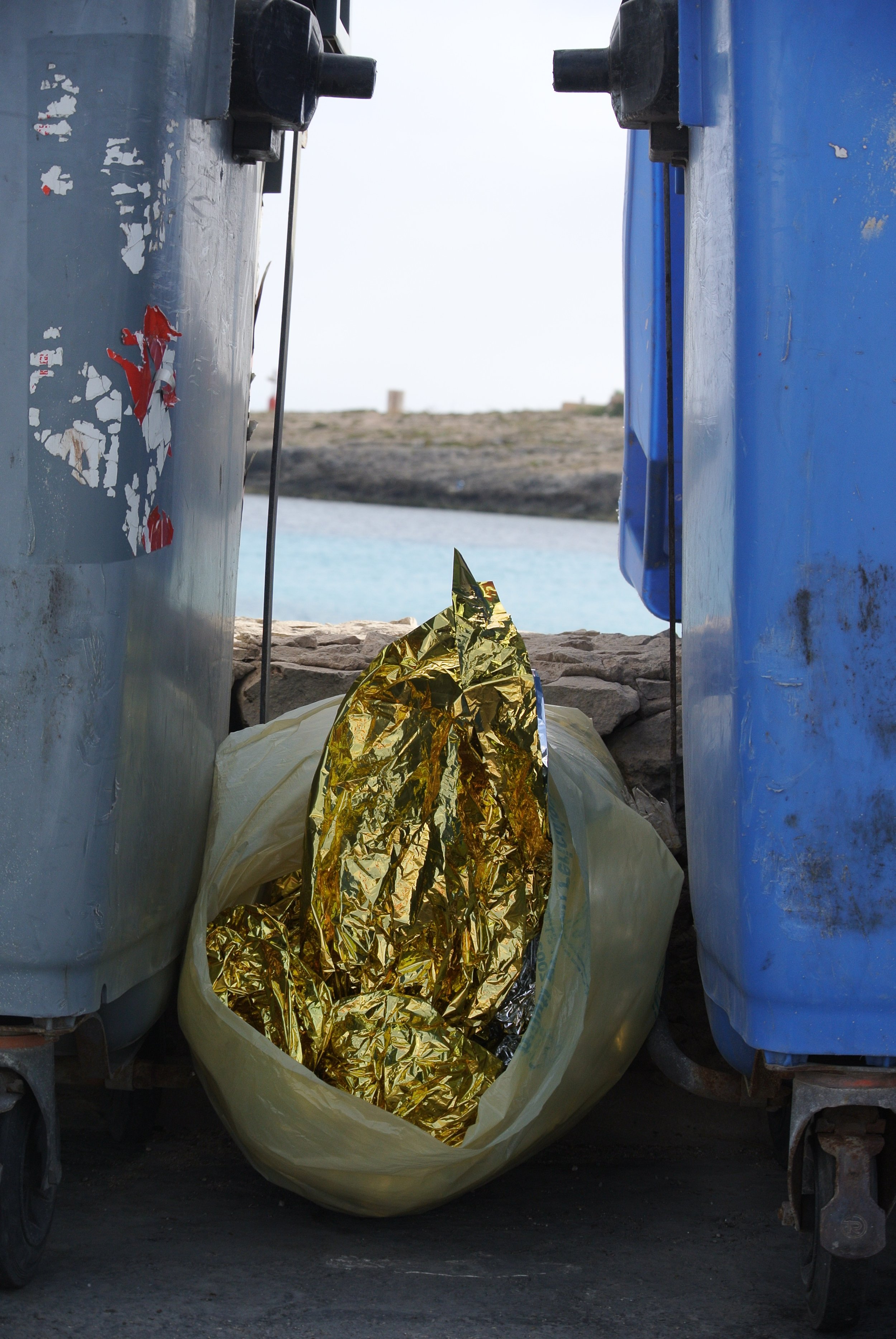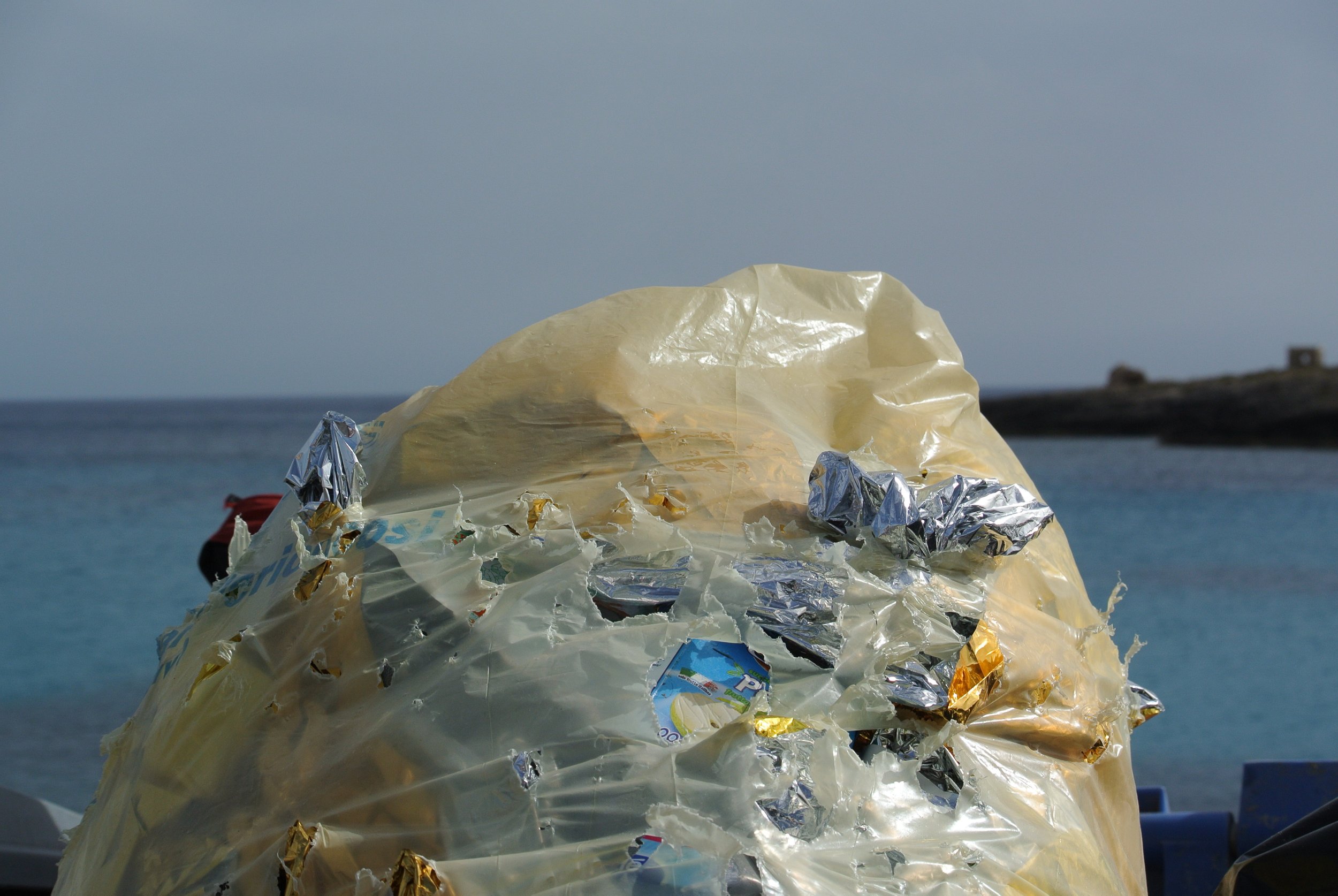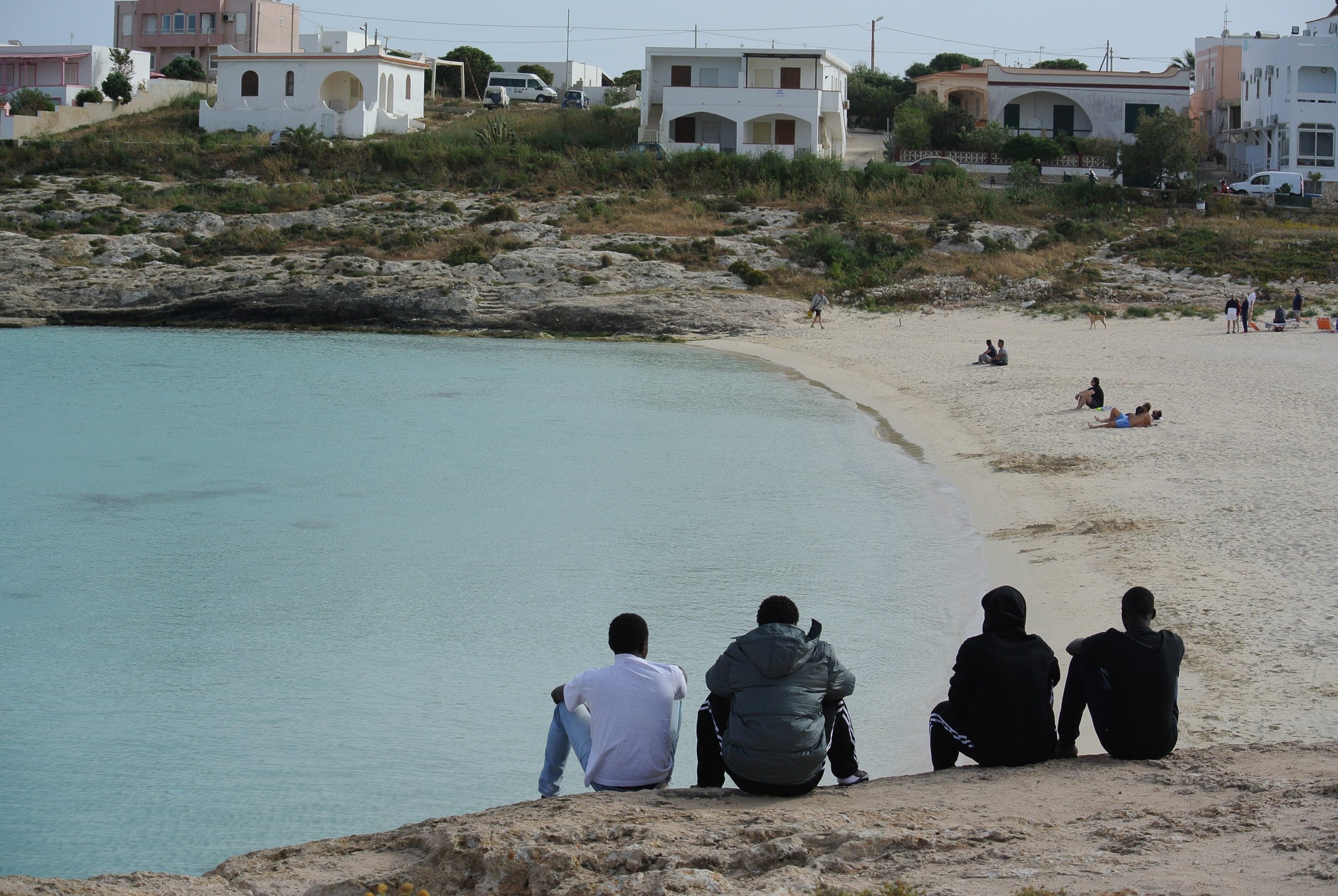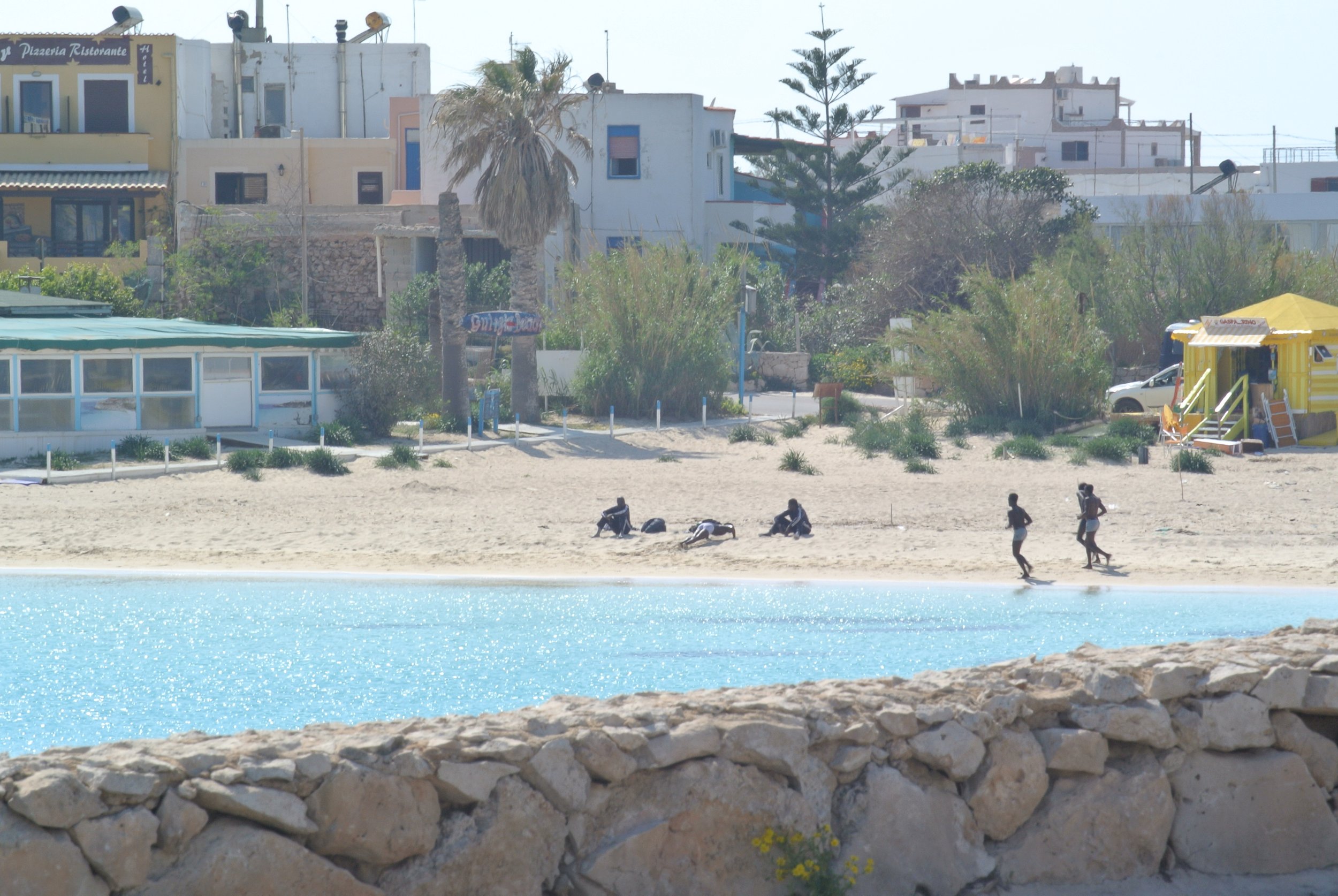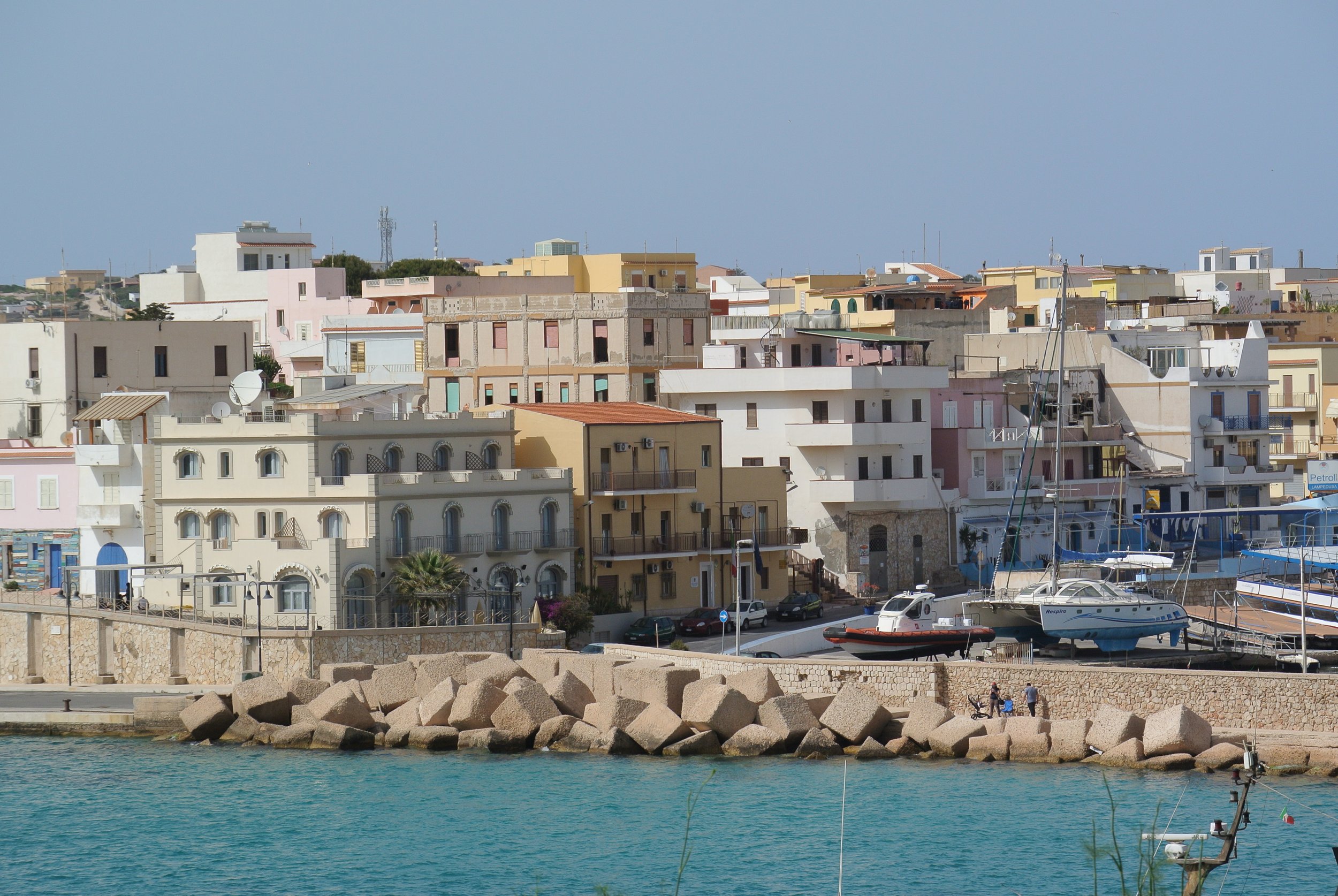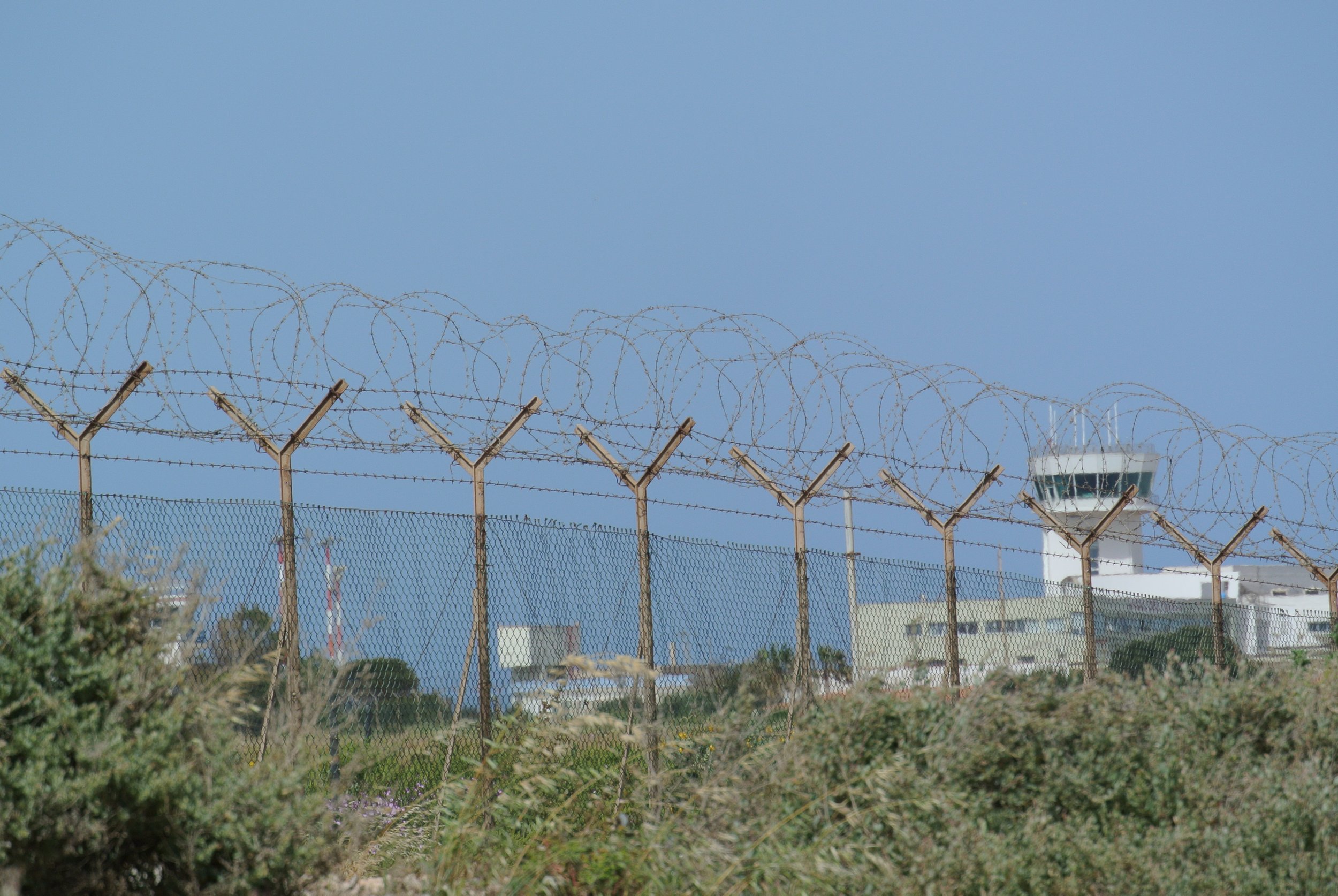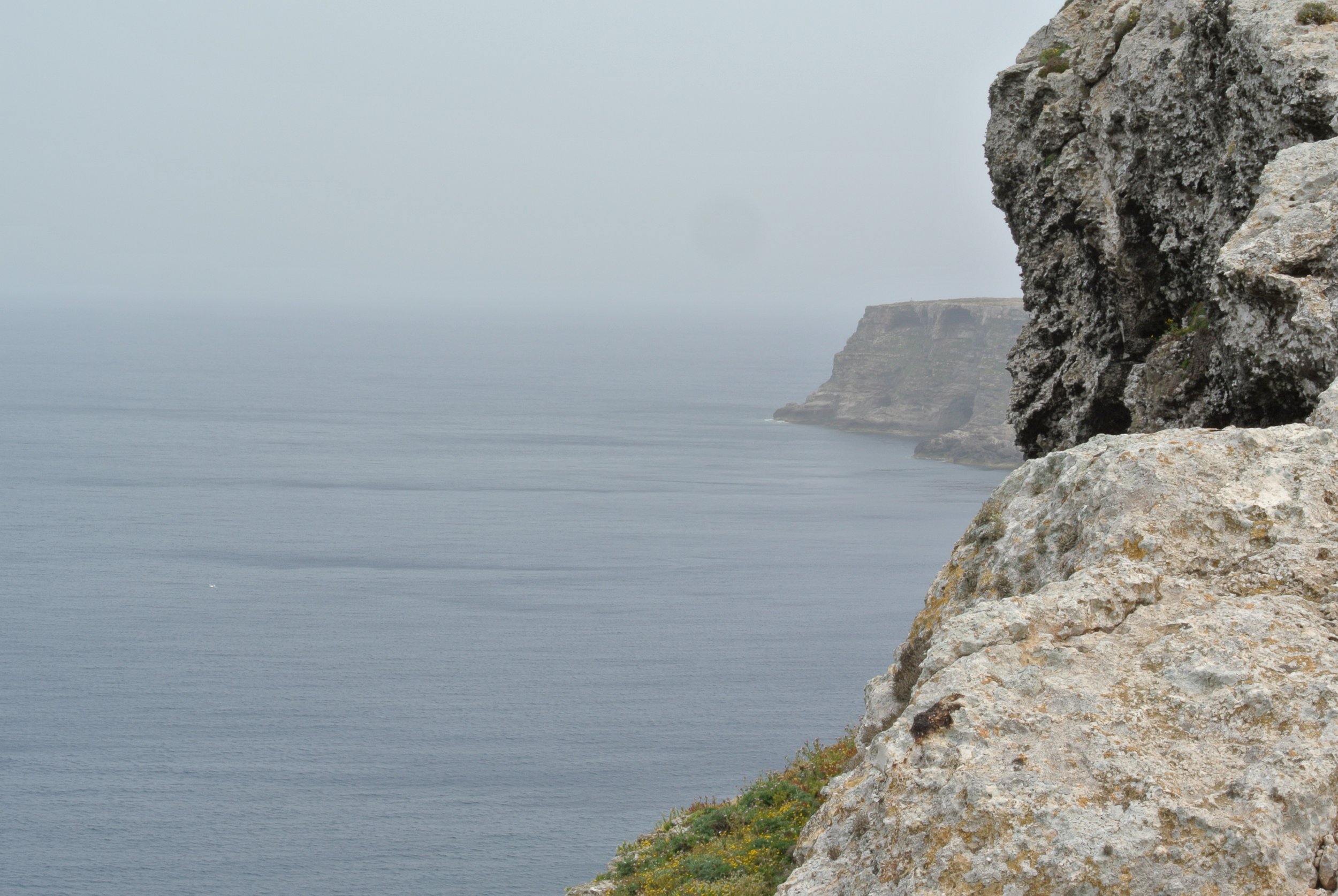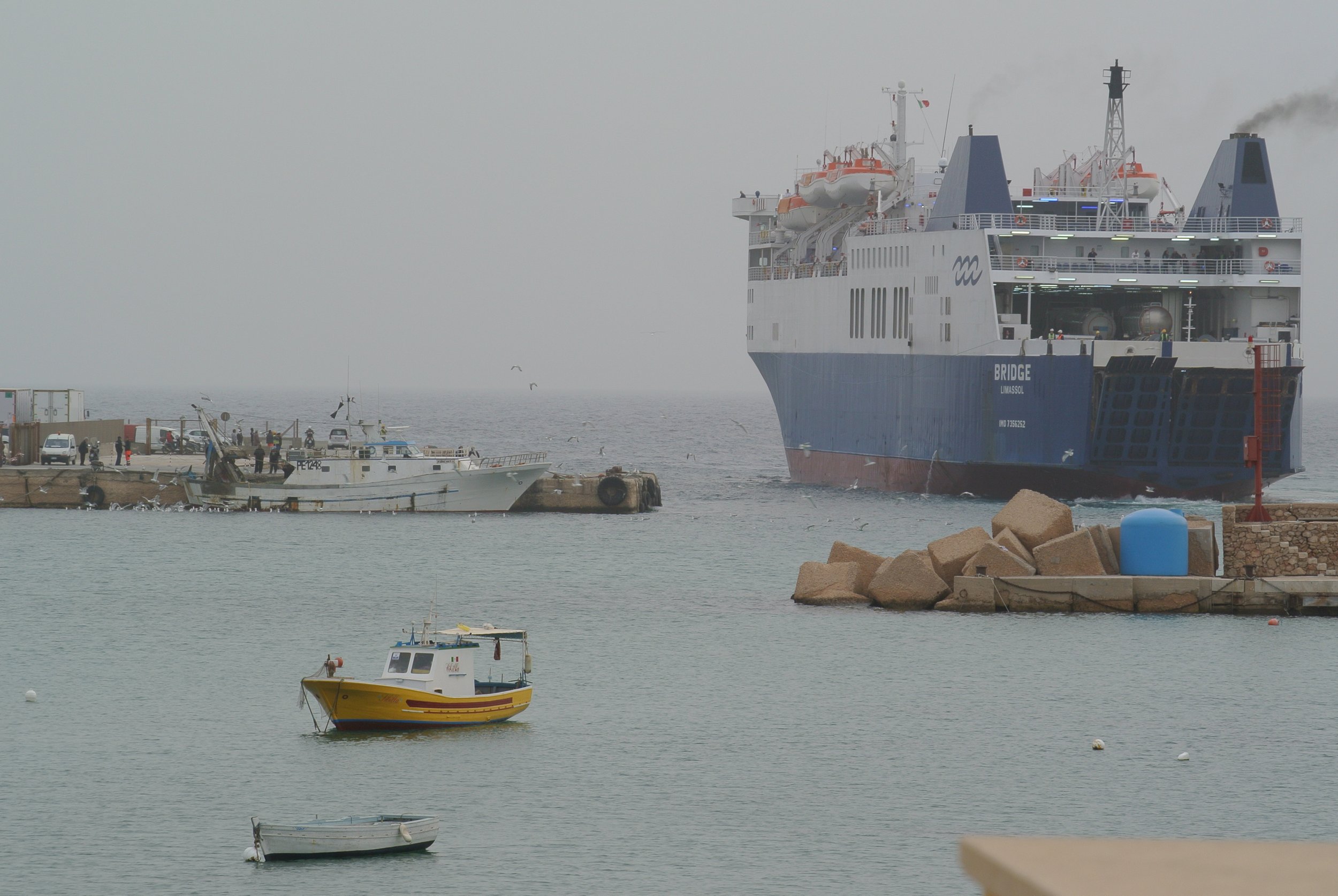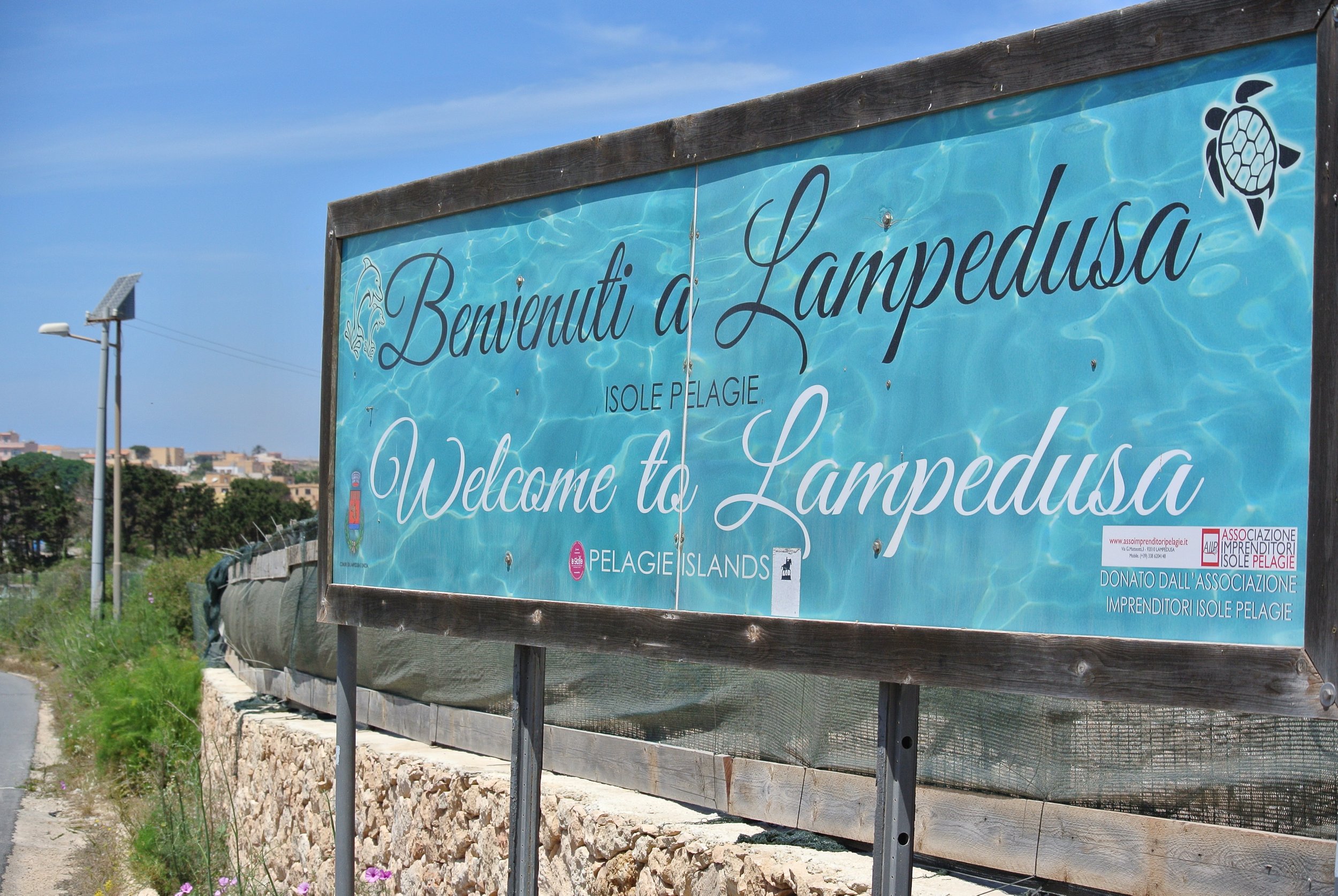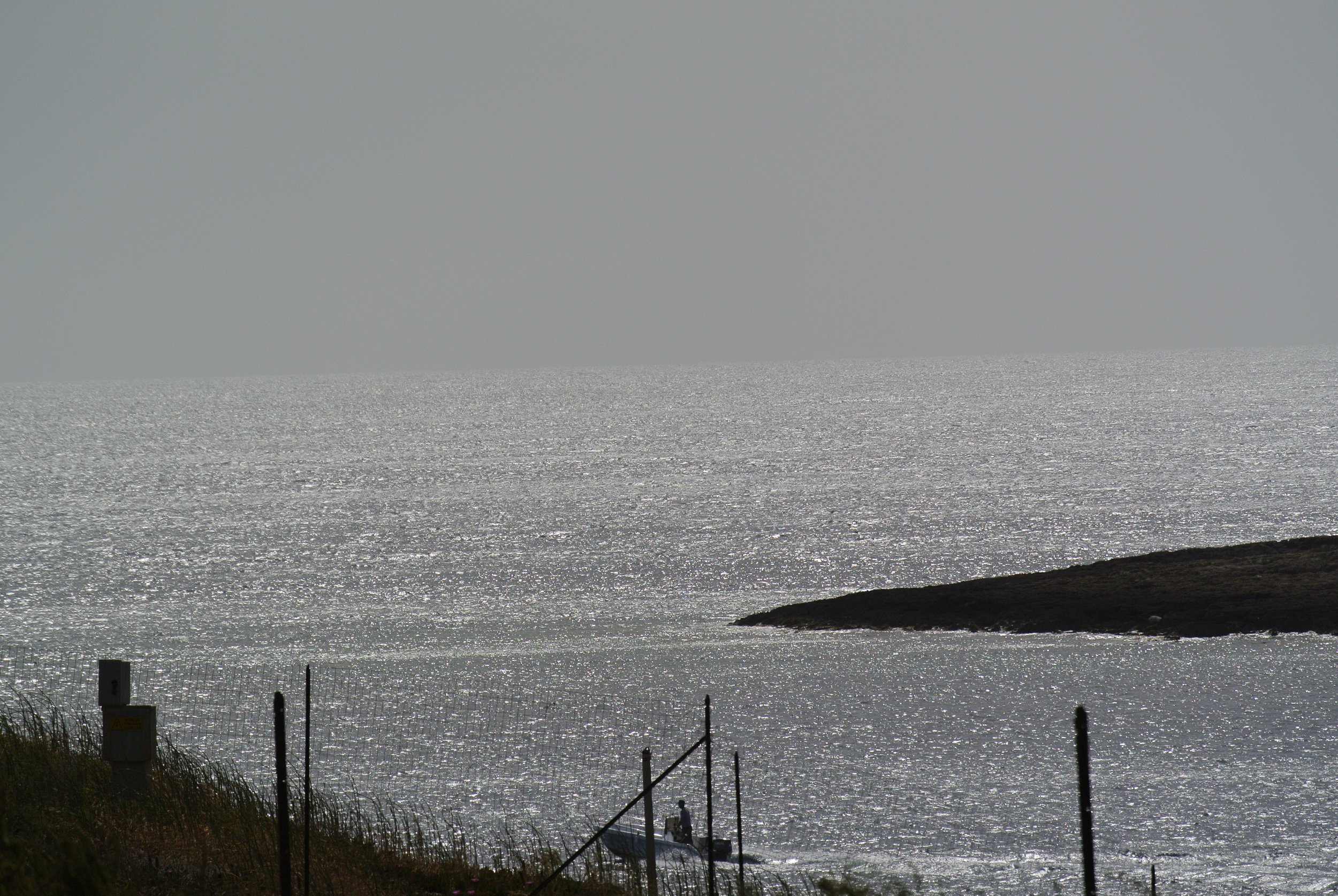The Power of a Free Mind
Lampedusa, Italy: Disembarkation underway while two men from West Africa sit on the shore across the port at Cala Guitgia. 7 May 2017.
©Pamela Kerpius/Migrants of the Mediterranean
By:
Judith De Santis, Germany Correspondent
Published:
13 December 2022
Translation: Jacqueline A. Robinson
In the spring of 2017 – before I even knew Migrants of the Mediterranean existed – I was conducting ethnographic research on Lampedusa. It was a unique place at a unique time. For starters, it was not uncommon to find myself at a cafe next to armed soldiers drinking cappuccinos.
It illustrated so well the kind of place Lampedusa is: one of contradiction and in-between. Large numbers of civil servants, border police and military forces of all sorts were stationed there. It showed me right away how complex the realities of daily life can be.
Lampedusa is a small rugged rock in the Central Mediterranean. In geographical terms, it’s closer to Tunisia than Italy, and only about 20 square kilometers in size. Yet it is also one of the most focused-upon peripheries of Europe. Since the 1990s, it’s become a transit zone for people from the Maghreb countries – those coming from Libya and Tunisia – as well as from sub-Saharan Africa and the Horn of Africa.
Lampedusa is also a top tourist destination. During the summer months, it can happen that up to 11,000 tourists (though unofficial reports from locals have put the numbers up to 50,000) are staying on the island, when officially it has a population of just 6,000.
A complex European Border Regime has been established on Lampedusa too. Its purpose is to manage undocumented migration, and since 2015, Lampedusa has been labeled an EU-Hotspot. At the very center of it, hidden from view in a valley, incoming migrants are registered, fingerprinted, and eventually transported to the mainland.
The spectacular media coverage and political discourse further complicates this island’s identity as well, where dominant narratives have emerged of it being a “refugee island” or “island of hospitality.”
As you can see, the island is a venue of real spectacle of power.
It’s like everyone present is trying to gain control over this little piece of Europe’s external frontier.
I saw how security forces, employees of the government of Lampedusa, employees of the border protection agency Frontex, humanitarian organizations, non-governmental organizations, journalists and tourists, to say nothing of the residents themselves, were all trying to make sense of it.
Arriving people in the migrant community had the ability to leave the “hotspot” or reception center and come into the town center freely. It was common for them to leave the camp during the day, through a gap in the metal chain link fence, which locals explained was a way to avoid tensions inside the camp caused by overcrowding.
That’s how I met Lamin* and Bubakar*, on Via Roma, Lampedusa’s main street. It was easy to get into conversation. It was just us, and we spoke the same language, English. In that way, or at least in that moment, the world was ours.
Our trust in each other grew. Short exchanges became lengthy conversations. I learned so much about the conditions in the Sahara desert for people fleeing, often experiencing labor exploitation and violence in Libya – to say nothing of the unimaginable experiences crossing the sea, which you have read about so often on Migrants of the Mediterranean.
The environment was bizarre, and the stories were staggering, and we didn’t know what would happen next.
For a long time there was silence, in the case of Lamin, five years of it.
A couple of months ago I received a voice note from an unknown number. There was no profile picture or name. When I listened, it knocked me off my feet.
“But what I felt most of all was relief:
he was still there.”
“Yes, hello, Judith! Good morning. How are you?” It was Lamin after five whole years. I was shocked. I was touched. But what I felt most of all was relief: he was still there.
He ran into Bubakar at the train station in Milan, who shared my number, after he’d lost it years ago. Bubakar is a character of his own. Someone who takes care of people. Another guy told me once when we were still on the island, “He is the one who cheers everyone up,’’ he was always telling jokes, he said.
These memories – so many years later – came rushing back. And the meaning of our conversations resonates more now than ever as the new Germany Correspondent at MotM.
I’ll never forget what Demba*, another person I met on Lampedusa then, said when I thanked him after a particularly intense evening of conversation.
“No problem,” he said, “Speaking about it frees my mind.”
These words echo inside me to this day.
In doing the work of Humanitarian Storytelling, we create space for people like Lamin and Bubakar, and Demba to unburden themselves of living trauma alone – to free their minds, so that they may continue the next stage of their journeys, their lives.
Sometimes it feels like fate that I met Pamela Kerpius, the Founder at Migrants of the Mediterranean. She was on the island then too doing her own early documentation in 2017 that would become the base of the organization you see today.
I have recently lost contact with Lamin again, but I know he’ll get back in touch, and when he is, I’ll be there to help him keep “freeing his mind.” Because that’s what we do when we amplify the voices of the people who need to be heard.
You can do that now when you donate to the 4th Annual Holiday Fundraiser and help keep Humanitarian Storytelling alive. Thank you for being with us.
*Names have been changed to protect their privacy


